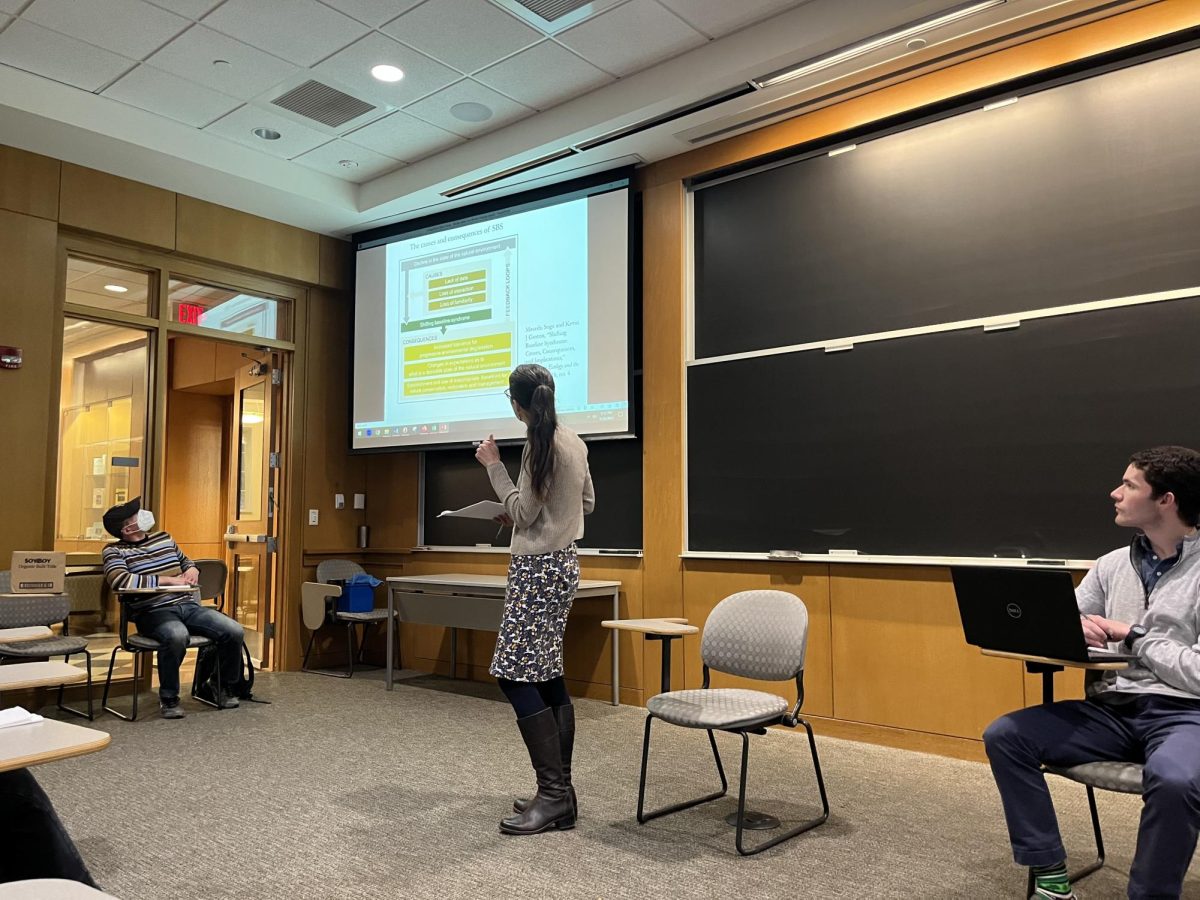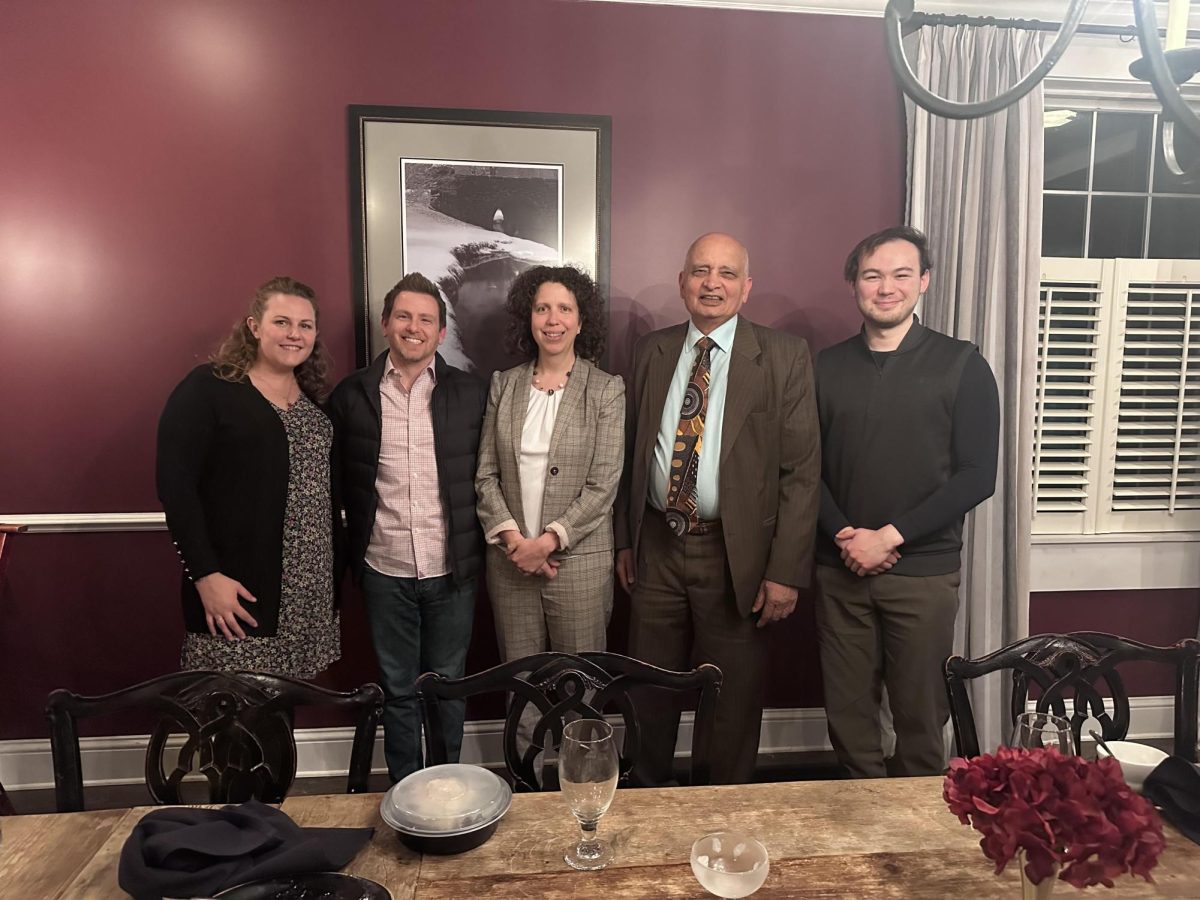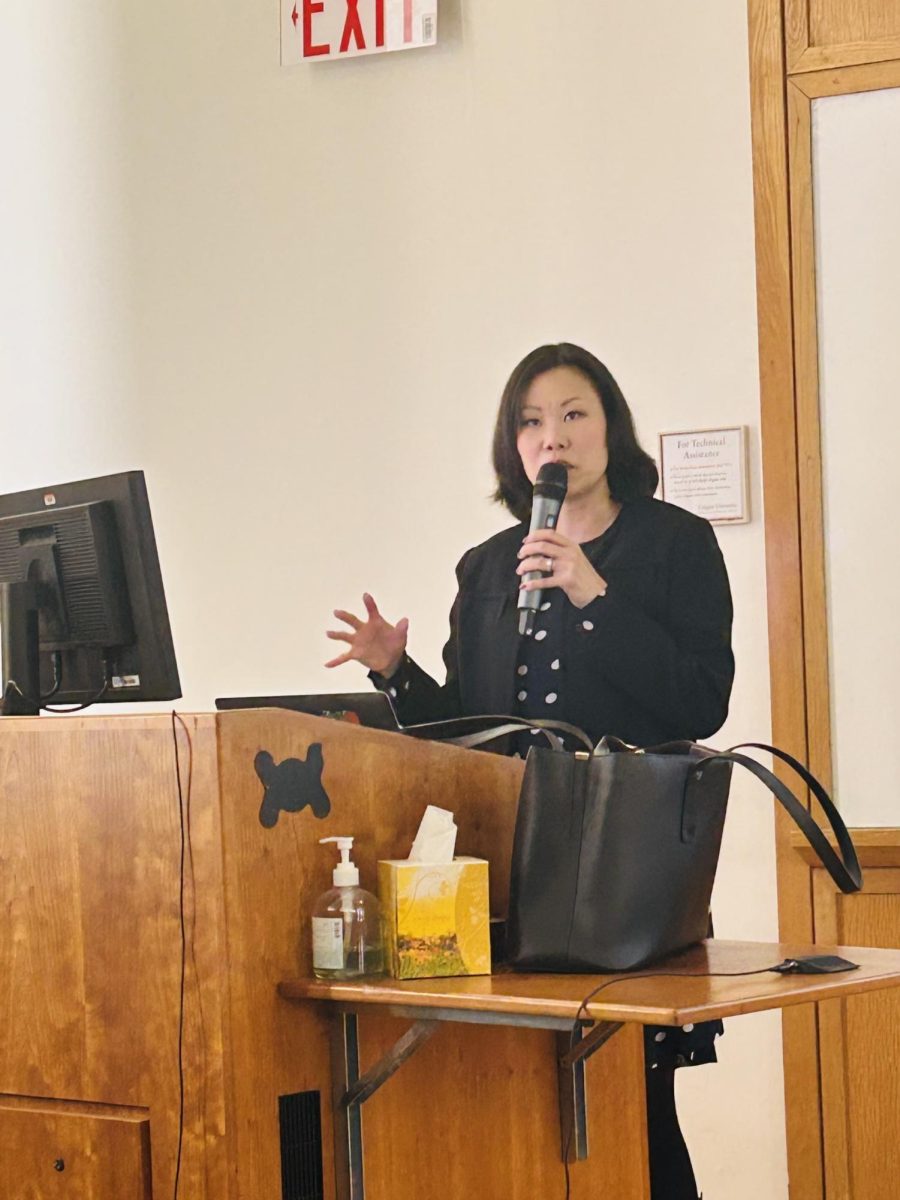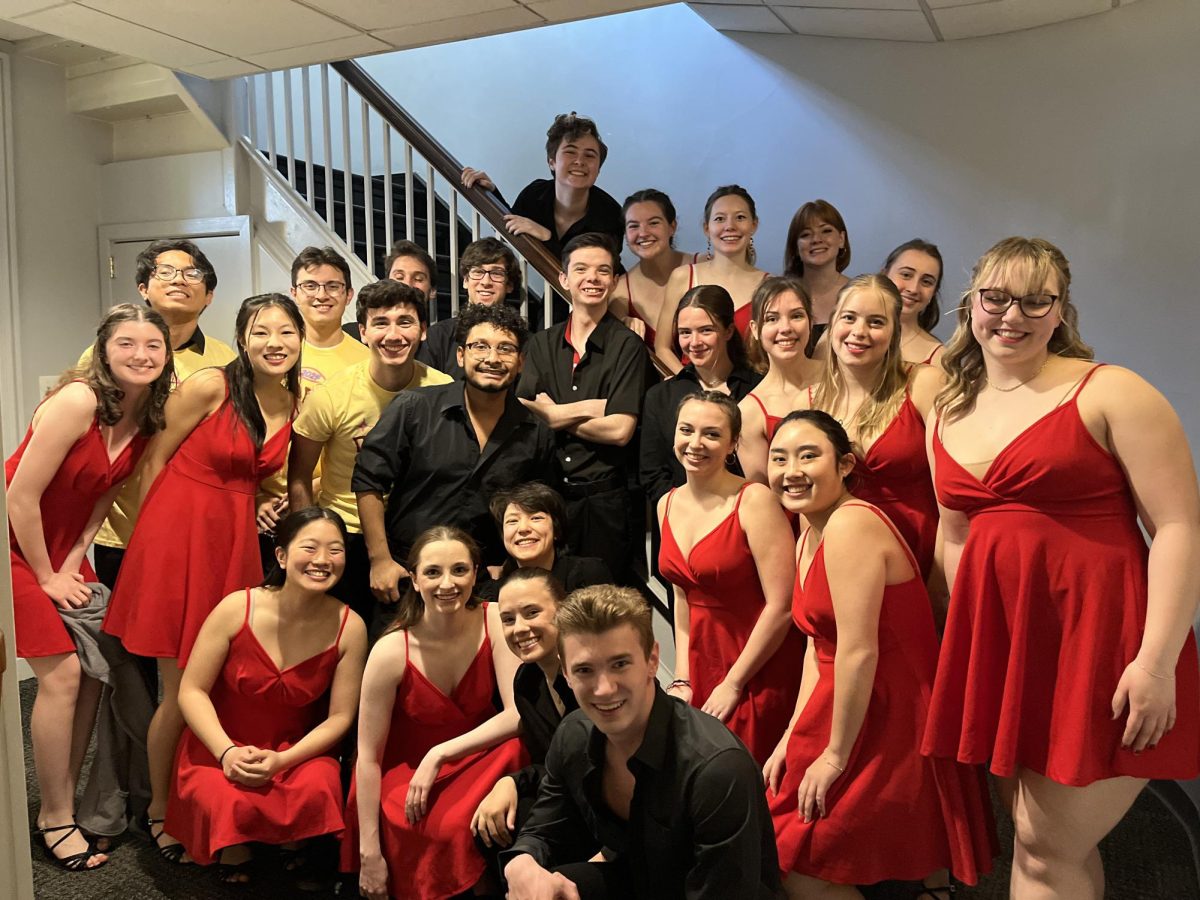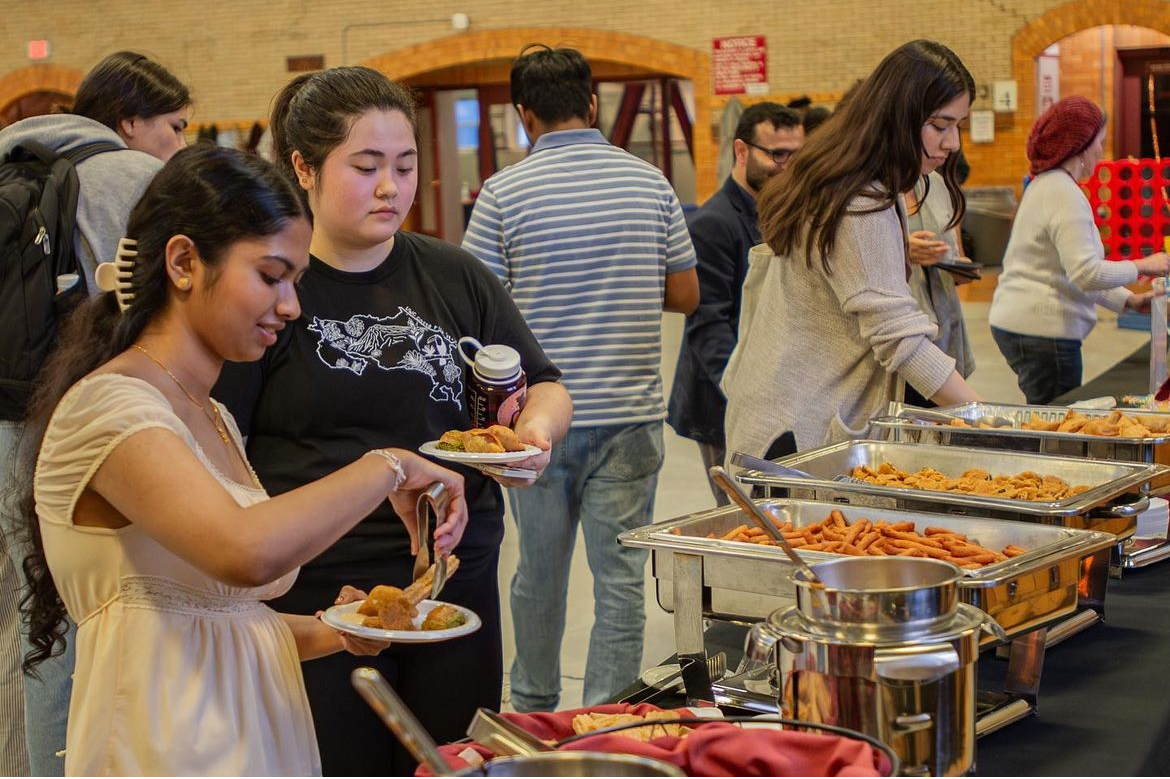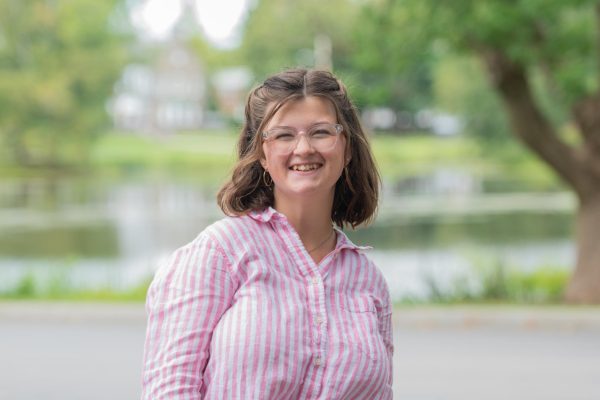Senior Michael Connerty, an environmental economics major, hosted an event — “What Can You Do About Climate Change?” — on Thursday, Nov. 2, outlining actions students can take to fight against the critical threats of climate change and its numerous effects.
Professor of Environmental Studies Heather Roller discussed the “environmental blindness” that younger generations experience. She described how, nowadays, people are so engrossed with the stresses of everyday life that they are spending far less time outside and have less appreciation for nature. Roller emphasized the need for individuals to feel more in touch with nature and notice their surroundings, as it will help address environmental blindness and make a difference in the way they connect with nature.
“Make time in your daily routine to walk around the quad with your phone away, just noticing what you hear and see,” Roller said.
Assistant Professor of Chemistry Gongfang Hu discussed chemists’ contribution to global warming. Chemists construct molecules together in order to produce plastic. The way in which molecules interact determines whether the plastic is reusable or not.
“It will make a big difference if everyone starts reusing. We won’t stop generating waste, but will force industrial people to think about how to make plastic reusable,” Hu said. “It will force the chemists to make a polymer reusable so it’s sufficient for day to day use.”
Additionally, Hu discussed how the amount of carbon dioxide emitted is directly correlated with the amount of industry a country has, and how less industrialized countries have fewer sustainable options.
“If I ask someone to give up all fossil fuels, they are going to starve. The power to emit carbon dioxide represents how much industry there is,” Hu said.
Thus, we must look at restricting carbon dioxide emissions from a chemical perspective focusing on recycling carbon, rather than a societal perspective where we eliminate carbon altogether. Recycling carbon dioxide into plastic is both a profitable and environmentally beneficial solution, satisfying everyone.
Connerty discussed the ways to get involved in fighting sustainability challenges in different corners of campus.
“No matter what you’re involved in, sustainability can still be part of your Colgate experience,” Connerty said. “The Students for Environmental Action have biweekly meetings discussing environmental issues on campus. Additionally, the Green Earth gang teaches local elementary students about sustainability every Friday.”
Ultimately, even in our small community, there are still numerous actions individuals can take to fight environmental problems. Some of these actions include being more in touch with nature, using reusable rather than disposable utensils and incorporating creative solutions in the different niches of campus.


